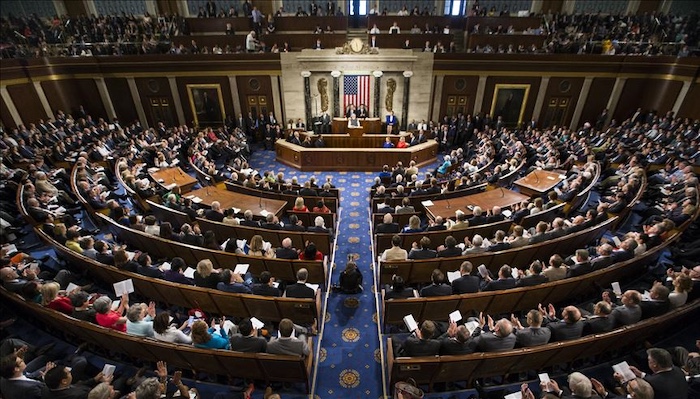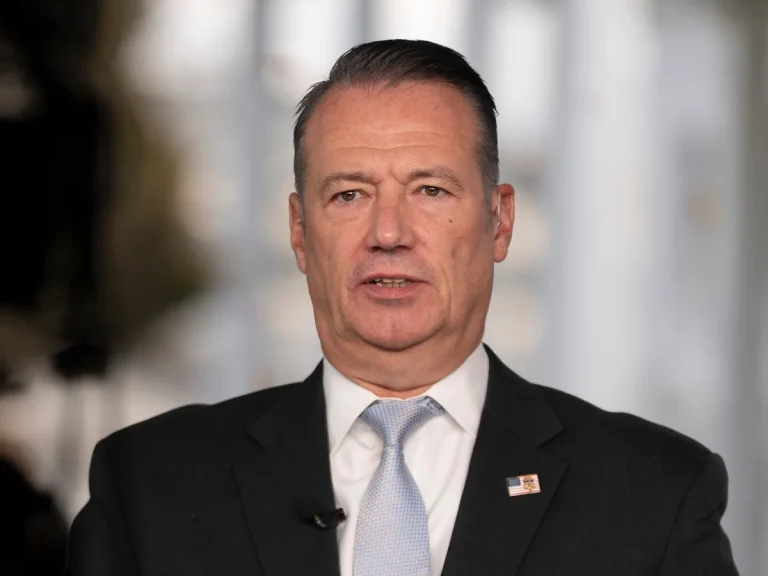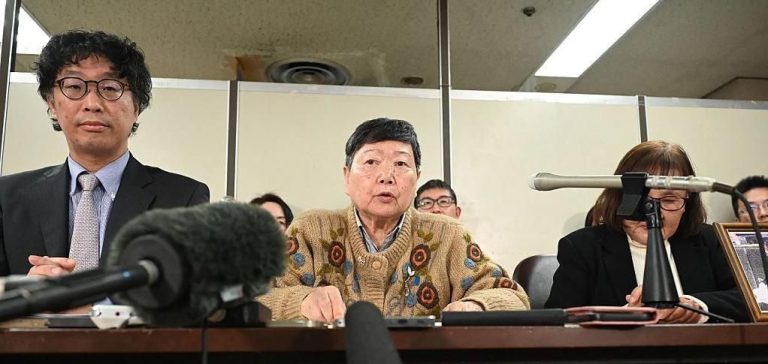

Nigeria Faces Scrutiny In Washington As US Panel Debates Christian Persecution, CPC Status
The United States House Foreign Affairs Africa Sub-committee on Thursday held a public hearing on religious persecution in Nigeria and President Donald Trump’s recent redesignation of Nigeria as a “Country of Particular Concern”, with members expressing divergent opinions on the current situation in Nigeria.
The hearing brought together lawmakers, human rights experts, as well as civil society organisations and advocates to discuss growing violence and alleged legal restrictions affecting religious communities in Nigeria, especially in the Northern part of the country.
In recent years, Nigeria has experienced security challenges, wherein non-state actors, including militant herders and terrorist groups like Boko Haram and the Islamic States West Africa Province, as well and bandits have carried out attacks targeting both Christians and Muslims.
While a number of the speakers spoke in favour of designating Africa’s most populous nation as a ‘Country of Particular Concern’, a status reserved for nations engaging in systematic, ongoing, and serious violations of religious freedom, a handful of the speakers sought balance, maintaining that the issues were not as simplistic as being portrayed by the US.
Chair of the Panel, Chris Smith, who represents the State of New Jersey, in his opening remarks, described the hearing as critical to the systematic and accelerating violence against ‘predominantly’ Christian communities in Nigeria.

Quoting data from Open Doors, he stated that Over 52,000 Christians in Nigeria have reportedly been targeted and killed by Islamist extremists while approximately 34,000 moderate Muslims have been murdered in Islamist attacks since 2009.
However, he posited that the United States must not stand by idly, the reason why he has repeatedly championed legislation calling for action. According to Smith, while designating Nigeria as a country of concern is a first step, the US must also help the country to overcome its current security challenges.
“I applaud President Trump’s recent decisive action to redesignate Nigeria as a Country of Particular Concern (CPC) for engaging in and tolerating severe violations of religious freedom. This was a critical step, reversing an inexplicable and unjustified previous decision by the Biden administration that had only emboldened the purveyors of hate.
“But the designation is only the first step. Now, we must rigorously utilise every tool embedded in the International Religious Freedom Act of 1988, authored by Congressman Frank Wolf, and the Frank Wolf International Religious Freedom Act of 2016, which I authored.
“I urge the State Department to seriously consider supporting human-rights vetted Nigerian forces to defend and protect Nigerian Christians and moderate Muslims. First, we must condition U.S. foreign assistance. Aid must be tied to verifiable progress from the Nigerian government in preventing persecution, prosecuting perpetrators, and protecting all communities.
“Second, we must provide direct humanitarian assistance to the faith-based groups working on the ground in the Middle Belt, who are best equipped to reach the internally displaced.

“Third, we must impose targeted sanctions under the Global Magnitsky Act, using visa bans and asset freezes against individuals and entities responsible for these gross human rights abuses. The complicit must pay a price,” he added.
Congresswoman: US Military Threat Reckless
But at the hearing, US Congresswoman, Sara Jacobs, described as reckless, Donald Trump’s military threat to Nigeria over alleged Christian genocide, arguing that blaming Nigeria’s violence solely on religious conflict fails to capture the full scale of the crisis.
She said: “President Trump’s threat is reckless, and any unilateral military action in Nigeria is illegal. Congress has not authorised force in Nigeria to protect Christians.”
Jacobs, a member of the House Foreign Affairs Committee and Ranking Member of the Subcommittee on Africa added that the violence affects both Christians and Muslims, urging the Nigerian government to do more to protect its citizens.
THISDAY recalls that weeks ago, the US President said he had designated Nigeria a country of particular concern, and asked the Defence Department to prepare for possible military action in Nigeria if the Nigerian government continues to allow the killing of Christians.
CSIS: Labelling Killings as Christian Persecution Oversimplifies Situation
In her submission, a Director and Senior Fellow of the Africa Programme at the Centre for Strategic and International Studies (CSIS), Oge Onubogu, who spoke at the event, argued that branding Nigeria’s insecurity as Christian persecution was an oversimplification of a complex situation.
Onubogu, who said she grew up in Jos, cautioned against a narrow narrative that reduces the crisis to simply Christian persecution, arguing that religious and ethnic violence in Nigeria is driven more by governance failures and worsened by hate speech and conspiracy theories.
“A narrow narrative that frames Nigeria’s security situation solely as the persecution of Christians oversimplifies the issue. Religious and ethnic violence is driven more by governance failures and worsened by hate speech and conspiracy theories,” she maintained.

According to her, the insecurity in Nigeria stems from several years of governance failures, historical grievances, and social tensions rather than a single religious narrative, stressing that while Nigeria holds significant regional influence, it also faces persistent instability.
She added: “Nigeria’s instability stems from a key shortcoming. Despite (over) 64 years of independence, it has yet to establish a national identity grounded in basic freedoms and dignity.”
According to her, religion, ethnicity, and language continue to shape identity more than nationality, noting that understanding Nigeria’s violence requires looking beyond its apparent religious framing.
Describing Nigeria’s crisis as a mix “of religious extremism, banditry, criminality, resource competition, communal conflict, and separatist agitation, onubogu warned that religion will continue to influence politics in Nigeria.
Onubogu cautioned against military intervention and noted that any unilateral U.S. military action “would likely endanger the very Christians it aims to protect” and deepen Nigeria’s religious divisions and called on the US to avoid “reactive quick-win actions” and adopt a wider approach.
According to her: “Engaging with communities of all faiths, supporting moderate leaders, tying security assistance to governance reforms, and working more closely with state and local authorities,” and also the “revival of a bipartisan U.S. Congressional Caucus on Nigeria,” would be critical to the success of any US cooperation with Nigeria.
Besides, she called on President Bola Tinubu to appoint “a capable Nigerian ambassador to the US” to address mass killings and insecurity in the country.
Anagbe: Christianity Faces Risk of Extinction in Nigeria
In his presentation, the Bishop of the Catholic Diocese of Makurdi, Wilfred Anagbe, who joined the hearing virtually, maintained that Christians in Nigeria risked being wiped out by terrorists, pointing out that Nigeria was entering “one of its darkest periods” for Christians.
He said: “Christianity risks elimination in parts of Northern and Middle-Belt Nigeria within a very short time.”
To the cleric, the ongoing crises marked by killings, kidnappings and widespread destruction have intensified despite recent international attention, stressing that millions of displaced persons remain in camps, unable to return to their ancestral lands. “This threatens cultural continuity, religious and economic survival,” he argued.
He added that women “endure sexual violence as a weapon,” warning that such tactics are designed to ensure that “no more Christians will be born from so many traumatised”, recalling a series of recent violent incidents, including the May 22 attack on his hometown.
“An entire convent of Reverend Sisters of the Order of St. Clare was displaced, along with the local Catholic parish,” he stated.
“It took the prayers of the Holy Father, Pope Leo XIV, for the government in Nigeria to even acknowledge this evil,” he maintained, accusing the federal government of failing to confront the insecurity in the country head-on.
He asked : “Who is killing the Muslims up north? Is there any Christian militia displacing millions and occupying lands in Nigeria?“, warning that the violence is now spreading southward, displacing millions and destroying farmland.
He added: “The church alone cannot stop the killings. It requires coordinated political, military and humanitarian intervention. Mr Chairman and members, we cannot afford to wait any longer. Please enact concrete actions according to the CPC designation. We all know that inaction emboldens the extremists even more.”
Debate Splits US Lawmakers
However, it was observed that the debate caused serious divisions. For instance, Jacob McGee, Deputy Assistant Secretary in the Bureau of Democracy, Human Rights and Labour, defended the CPC redesignation, insisting that ‘atrocities’ against Christians, particularly in the Middle Belt, were faith-driven.
“These attacks directly target Christian populations. Witness testimonies confirmed attackers used religious language and specifically targeted Christians for killing, abduction, and rape,” McGee said.
Besides, he criticised Nigeria’s handling of blasphemy cases, describing slow judicial processes and mob violence as evidence of systemic religious freedom violations.
But another US Representative, Pramila Jayapal, pushed back strongly against what she called a one-sided narrative.
“The killings in Nigeria aren’t just the persecution of Christians. It is the persecution of multiple groups. We should be careful not to portray it as just prosecution of Christians; that would be simplistic,” she said.
Also in his presentation, Congressman Bill Huizenga, a co-sponsor of the resolution backing CPC redesignation, offered an emotional intervention, accusing the Nigerian government of inertia. “Tinubu’s government is sitting back, not doing enough,” he said.
Emmanuel Addeh



